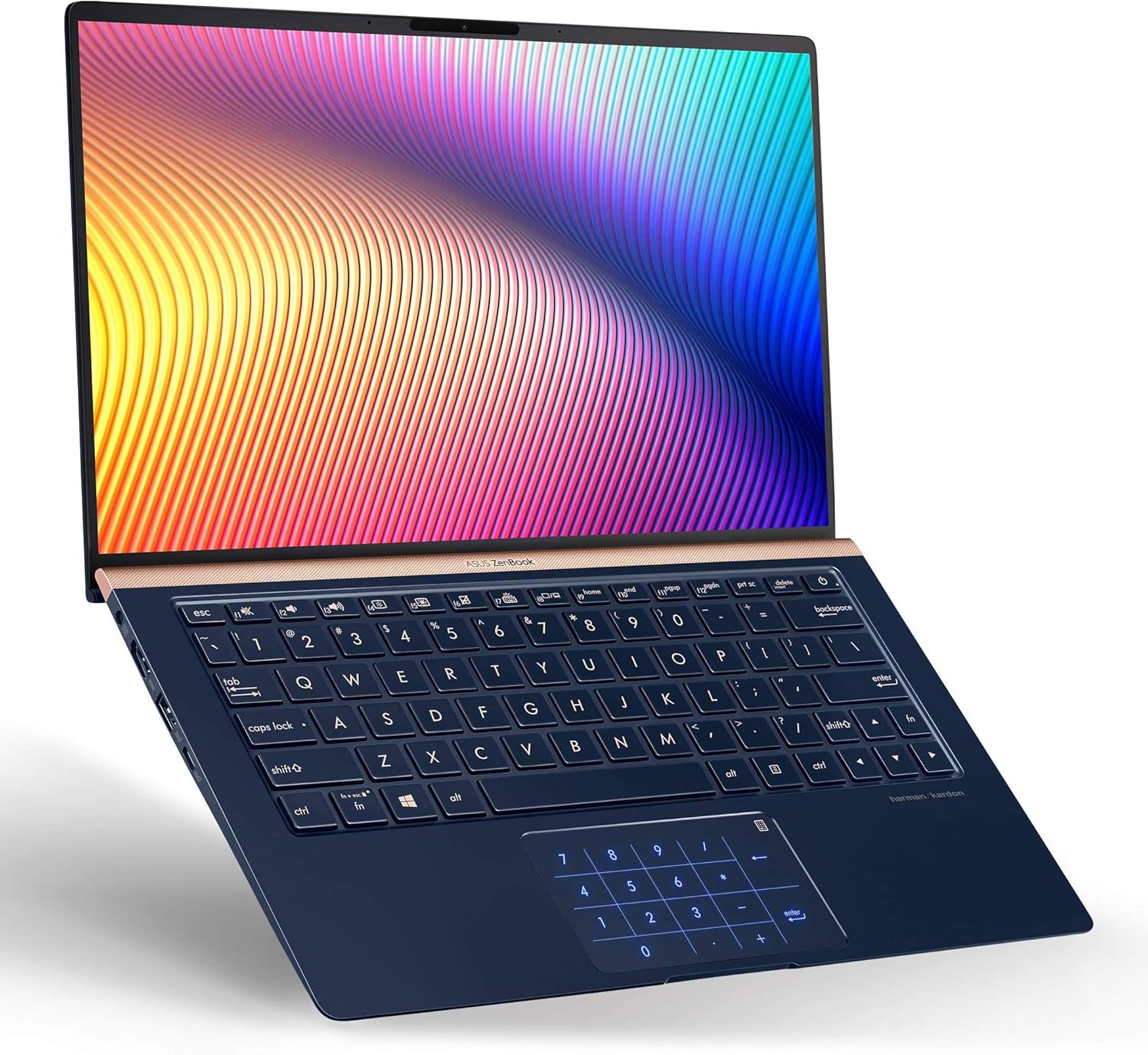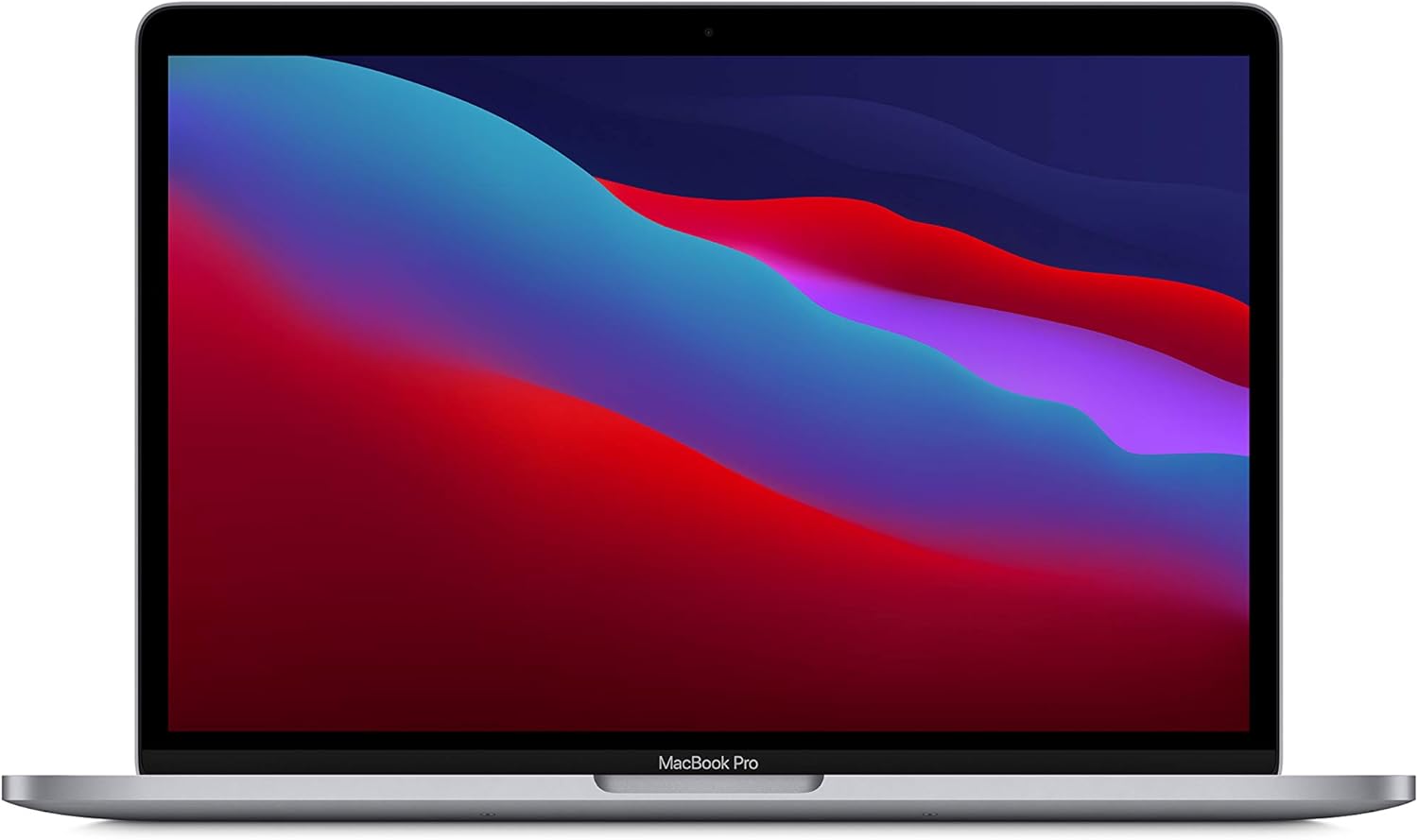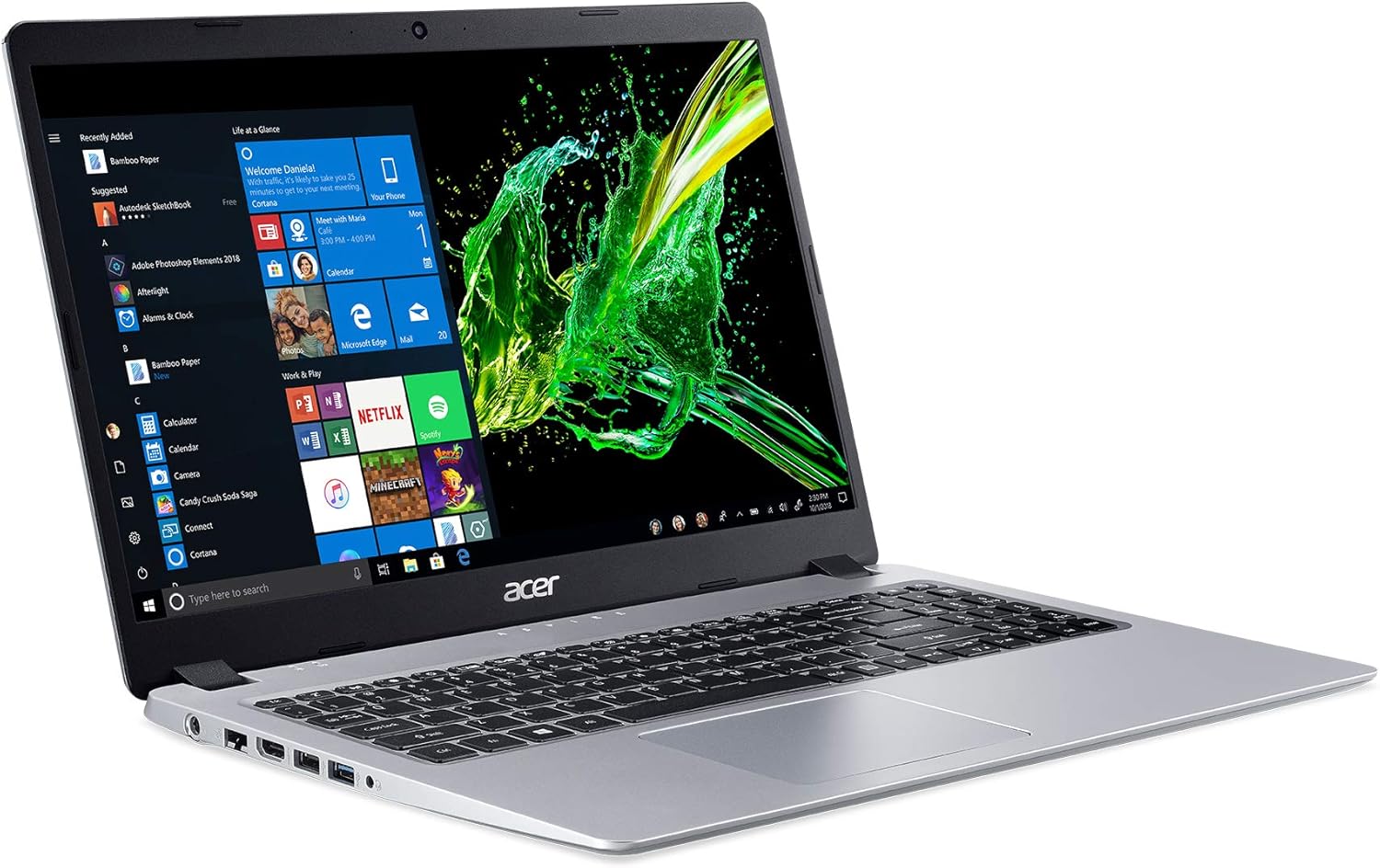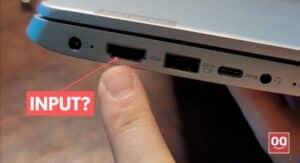The study of genealogy involves gathering and interpreting genealogical data. Genealogy is the oral history of a family, passed down from generation to generation. Basically, it is the story of our identity and our origin.
Nowadays, there are many technologies that make it easy to study genealogy. This includes collecting and interpreting data about our ancestors. There was a time when you had to spend hours in libraries or go through a stack of old books and dusty records. But with the advancement of modern technologies, you can do the research from the comfort of your home with the help of a laptop
A laptop is an essential tool for genealogy research. It allows you to access online databases, store and organize your data, and create family trees. Also, you can use a laptop to communicate with other genealogists and collaborate on research projects.
There are different types of laptops available in the market, and it can be confusing to choose the right one for your needs. In this article, we will guide you through the process of choosing the best laptop for genealogy research.
So, without any further talk, let’s get started.
| Product | Price |
|---|---|
| ASUS VivoBook 15 | Check Price |
| ASUS ZenBook 13 | Check Price |
| Apple MacBook Pro M1 | Check Price |
| Dell XPS 13 7390 | Check Price |
| Lenovo Flex 14 | Check Price |
| Acer Chromebook Spin 13 | Check Price |
| Microsoft Surface Pro 7 | Check Price |
| LG Gram 14Z90P | Check Price |
| Acer Aspire 5 Slim | Check Price |
1. ASUS VivoBook 15
Specification
- Brand: Asus
- Processor: Intel Core i5-1035G1
- Memory: 8GB
- Graphics: Intel UHD Graphics
- Storage: 512GB SSD
- Display Size: 15.6 inches
- Battery: 6 hours (avg)
- Weight: 3.75 lbs
- Dimensions: 14.1 x 9.1 x 0.8 inches
If you already have a powerful desktop and don’t want to spend much on a laptop, the ASUS VivoBook 15 is the perfect option for you. You can get this laptop for a reasonable price and it will do all the basic things you need for genealogy research.
The laptop is powered by the Intel Core i5-1035G1 Processor. It is a quad-core processor with a clock speed of up to 3.6GHz. It is a powerful processor that can handle most of your genealogy research tasks. It also has 8GB of RAM and a 256GB SSD, making it a good option for multitasking.
Moreover, the ASUS VivoBook 15 comes with a 15.6-inch display which has a resolution of 1920×1080. This makes it a good option for watching videos or doing other tasks that require a good display. The laptop also comes with an HD webcam, which will be useful for video calls.
In addition, the laptop offers an excellent typing experience and will not strain your hands or wrists at all. The keyboard on this laptop has 1.4mm of travel, which is the perfect amount for getting a comfortable feel when you type. It allows you to adjust the keyboard angle up to 2 degrees for improved typing position. The keys are also backlit, so you can type in low-light conditions.
Overall, the ASUS VivoBook 15 is a great laptop for genealogy research. It has a powerful processor, a good display, and an excellent keyboard. It is also reasonably priced, so it won’t break the bank.
PROS
- Reasonable price
- Decent performance
- Lots of connectivity options
- Lightweight
CONS
- Not recommended for heavy multitasking.
2. ASUS ZenBook 13
Specification
- Brand: Asus
- Processor: Intel Core i7-8565U
- Memory: 8GB
- Graphics: Intel UHD Graphics
- Storage: 512GB SSD
- Display Size: 13.3 inches
- Battery: 12 hours (avg)
- Weight: 2.5 lbs
- Dimensions: 12 x 8 x 0.55 inches
Here comes another great laptop for genealogy, the ASUS ZenBook 13. It’s lightweight and portable, yet powerful enough to handle all your genealogy needs. You can easily take it with you to your office, on research trips, or anywhere else.
The ASUS ZenBook 13 is packed with the Intel Core i7-8565U processor which gives you the power to handle any task, even the most demanding ones. It also has 8GB of RAM, so you can multitask with ease. And with a 512GB SSD, you’ll enjoy lightning-fast startup times and quick loading of files and applications.
Moving on, This laptop offers fast charging feature which allows you to charge it up to 60% in just 49 minutes. And with its long-lasting battery, you can get up to 14 hours of usage on a single charge. So whether you’re on the go or working from home, the ASUS ZenBook 13 will keep you productive all day long.
Now, let’s take a look at the display. The ASUS ZenBook 13 has a 13.3-inch Full HD display that’s perfect for viewing your family tree or doing research. Plus, it’s anti-glare and has wide viewing angles, so you can always see what you’re doing. However, it doesn’t support a touchscreen.
Also in terms of build quality, the ZenBook 13 won’t disappoint you. It is made from durable materials that can withstand rough usage. Additionally, this laptop features a backlit keyboard and a fingerprint reader.
Altogether, the ASUS ZenBook 13 is a great laptop for genealogy that’s lightweight, powerful, and durable. It has everything you need to get the job done, whether you’re at home or on the go. So, be sure to check this out.
PROS
- Portable and lightweight
- Fast charging and longer battery life
- Good display quality
- Enhanced typing experience
CONS
- Not touchscreen supported
3. Apple MacBook Pro M1
Specification
- Brand: Apple
- Processor: Apple M1 Chip
- Memory: 8GB
- Graphics: 8-core GPU
- Storage: 512GB SSD
- Display Size: 13 inches
- Battery: 18-20 hours (avg)
- Weight: 3 lbs
- Dimensions: 13.41 x 11.97 x 0.61 inches
If you want a reliable option for your research then the MacBook Pro can be a great option. It’s powerful enough to handle any tasks you might need to do, and its sleek design means it won’t take up too much space on your desk. The battery life of the MacBook Pro is excellent, and it will easily last through a full day of genealogical research. This makes it the perfect laptop for anyone who needs to do a lot of work on the go.
Apart from that, the retina display on the MacBook Pro is one of its standout features. This high-resolution screen makes everything look incredibly sharp. The color reproduction on the retina display is also excellent, so you’ll be able to see every detail in your photos and videos.
When it comes to the processor, the Apple MacBook Pro comes equipped with the latest M1 chip. This chip has been designed and optimized to provide the best possible performance. It’s incredibly fast and energy-efficient, so you’ll be able to work for long periods without having to worry about your battery running out.
The Apple MacBook Pro is available with either 8GB or 16GB of RAM. This should be more than enough for any genealogical research tasks you might need to do. The laptop also comes with a 512GB SSD, which provides plenty of storage space.
Overall, it is an excellent laptop for anyone who needs to do a lot of genealogical research. It can perform anything you throw at it. The M1 chip provides incredible performance. However, it is not surprising that the price of this laptop is somewhat higher.
PROS
- Reliable performance
- Portable design
- Retina display
- Offers utmost security
CONS
- Expensive
4. Dell XPS 13 7390
Specification
- Brand: Dell
- Processor: Intel Core i5-10210U
- Memory: 8GB
- Graphics: Intel UHD Graphics
- Storage: 512GB SSD
- Display Size: 13.3 inches
- Battery: 10-12 hours (avg)
- Weight: 2.70 lbs
- Dimensions: 11.9 x 7.8 x 0.46 inches
The Dell XPS 13 7390 is a great all-around machine that can handle any hardware-intensive tasks, whether it’s browsing through databases or Ancestry.com, working on family tree software like Family Tree Maker, or just general web browsing and document editing. Plus, it has a great battery life so you can keep working even when there’s no outlet to be found.
Moreover, it comes with a powerful Intel Core i7-8565U quad-core processor. It also has 8GB of RAM, which is more than enough for even the most demanding users, and a 512GB SSD. This means that not only will the XPS 13 be fast, but it will also have plenty of space for all your genealogy research files.
The Dell XPS 13 7390 has a beautiful 13.3-inch InfinityEdge display. This means that the bezels around the screen are very thin, making the laptop look and feel much smaller than it actually is. The display also makes the XPS 13 look very sleek and modern. The display also features touch sensitivity.
In addition to that, the XPS 13 is also very lightweight and portable. It weighs only 2.7 pounds, making it easy to carry with you to your local library or family history center. And, when you’re not using it for genealogy research, it can be a good travel laptop.
Also, this laptop features a fingerprint reader which is very easy to set up. just place your finger on the sensor for a few seconds and you’re done. So, if you are looking for a productivity laptop with unique features, check the Dell XPS 13 7390 out.
PROS
- Backlit keyboard and fingerprint reader
- Outstanding performance
- Longer battery life
- Innovative design
CONS
- A bit expensive
5. Lenovo Flex 14
Specification
- Brand: Lenovo
- Processor: AMD Ryzen 5 3500U
- Memory: 8GB
- Graphics: Radeon Vega 8 Graphics
- Storage: 256GB SSD
- Display Size: 14 inches
- Battery: 8 hours (avg)
- Weight: 3.52 lbs
- Dimensions: 12.91 x 9.02 x 0.7 inches
In recent years, Lenovo has manufactured some of the most amazing laptops. The Lenovo Flex 14 is one of the most powerful and versatile 2-in-1 laptops on the market. It offers great performance and value for the price. So, if you are looking for a powerful laptop without breaking the bank, it can be a great option.
It’s perfect for genealogy research as it has the AMD Ryzen 5 3500U processor which is a great performer. For graphics processing, it has the integrated AMD Radeon Vega 8 Graphics. So, you can expect smooth visuals while working with large family trees on Ancestry or other genealogy software.
Furthermore, the Flex 14 comes with 8GB of DDR4 RAM which is expandable up to 16 GB. So, you can easily upgrade the memory if you need more power in the future. For storage, it has a 256GB PCIe NVMe solid-state drive which is extremely fast.
The most interesting feature of this laptop is the convertible design which allows you to use it in different modes. You can use it as a laptop, tablet, or stand mode. This makes it a versatile option for different tasks. And since genealogy research typically involves working with large family trees, the convertible design is ideal. You can easily switch to tablet mode to enter data or make annotations.
Moreover, the laptop has a 14-inch Full HD IPS touchscreen display. The visuals are clear and crisp, and the touchscreen is extremely responsive. So, you can easily navigate without any issues.
Also, the battery lifespan of this laptop is pretty good. So, if you are looking for a powerful laptop with a convertible design, the Lenovo Flex 14 can be a great option.
PROS
- Reasonable price
- Impressive performance
- Versatile convertible design
- Includes additional features like a fingerprint reader, and a backlit keyboard
CONS
- There is room for improvement in battery life
6. Acer Chromebook Spin 13
Specification
- Brand: Acer
- Processor: Intel Core i5-8250U
- Memory: 8GB
- Graphics: Intel UHD Graphics 620
- Storage: 128GB SSD
- Display Size: 13.5 inches
- Battery: 10 hours (avg)
- Weight: 3.5 lbs
- Dimensions: 9.68 x 12.19 x 0.67 inches
Chromebooks can be a good option if you need a portable for genealogy research. They are more secure and cost less than traditional laptops.
However, before we go further, you should know that Chromebooks cannot run applications from Windows or Mac. They are primarily built for running web applications. If you are already aware of these things and want to get a Chromebook for your work then the Acer Chromebook Spin 13 can be a great option for you.
The Acer Chromebook Spin 13 is one of the portable options out there. Like the Lenovo Flex 14, it also comes with a 2-in-1 design that features a 360-degree hinge that allows you to use it as a tablet, so you can take it with you wherever you go. Plus, with a weight of only 3.3 pounds, it is one of the lightest 2-in-1 laptops on the market.
When it comes to performance, the Acer Chromebook Spin 13 is equipped with an Intel Core i5-8250U quad-core processor and 8GB of RAM. This combination can handle basic tasks without any issues. In addition, the Chromebook also comes with a 128GB SSD which is decent for storing your photos and other documents.
As far as the display is concerned, the Acer Chromebook Spin 13 features a 13.5-inch IPS touchscreen display with 2K resolution. The display is bright and crisp with good viewing angles.
If you want a budget-friendly laptop that is perfect for your genealogy research, the Chromebook Spin 13 can be an excellent option. You can carry it anywhere without any issues. Also, the performance is very impressive.
PROS
- Higher resolution display
- Longer battery life
- Convertible design
- Durable build quality
CONS
- Doesn’t support Windows or Mac applications
7. Microsoft Surface Pro 7
Specification
- Brand: Microsoft
- Processor: Intel Core i5 – 10th Gen
- Memory: 8GB
- Graphics: Intel Iris Plus Graphics
- Storage: 256GB SSD
- Display Size: 12.3 inches
- Battery: 10 hours (avg)
- Weight: 1.7 lbs
- Dimensions: 12.74 x 9.09 x 1.91 inches
If you want the best Windows experience, the Microsoft Surface Pro 7 is the way to go. It’s a great all-around 2-in-1 laptop that can handle anything you throw at it, including genealogy research.
The Surface Pro 7 comes with a 12.3-inch PixelSense display with a resolution of 2736 x 1824 pixels. The display is bright and clear, so you won’t miss any important details. Plus, the tablet mode is perfect for taking notes or sketching out your family trees.
Under the hood, the Surface Pro 7 is powered by a 10th-generation Intel Core i5 processor. That’s more than enough power for genealogy research, as well as other common tasks like web browsing. It also includes 8GB of RAM, which is plenty for most users. And the storage starts at 128GB, but you can upgrade to a larger 256GB or 512GB SSD if you need more room for your work.
Moreover, it features a long battery life of up to 10 hours. That means you can work all day without needing to charge it. And if you do need to charge it up, the Surface Pro 7 supports fast charging which can give you up to 80% battery life in just an hour.
In addition, the Surface Pro 7 is a lightweight and portable laptop that’s perfect for taking with you on the go. It weighs just 1.7 pounds, so it’s easy to carry around. And it features a slim and compact design, so you can easily slide it into your bag or backpack.
However, this laptop may sound a bit pricier to some people but it’s definitely worth every penny.
PROS
- Lightweight and portable
- Long battery life and fast charging support
- Crisp display quality
- Smooth multitasking experience
CONS
- Expensive
8. LG Gram 14Z90P
Specification
- Brand: LG
- Processor: Intel Core i7-8565U
- Memory: 16GB
- Graphics: Intel Iris Plus Graphics
- Storage: 512GB SSD
- Display Size: 14 inches
- Battery: 21 hours (avg)
- Weight: 2.2 lbs
- Dimensions: 12.34 x 8.47 x 0.66 inches
If you want marathon battery life, the LG Gram 14 is the best laptop can buy for genealogy. It’s a super-lightweight Ultrabook that doesn’t sacrifice power, and at just 2.2 pounds, it’s easy to carry with you wherever you go.
Moreover, it is powered by the Intel Core i7-8565U processor paired with 16GB of RAM, and 512GB solid-state drive. So, it has no problem running even the most hardware-intensive software out there.
The LG Gram 14 has a large 14-inch display, which is perfect for working with genealogy software and documents. Plus, the screen is touchscreen-enabled, so you can use your fingers or a stylus to navigate. The laptop also comes with a fingerprint reader for extra security.
Additionally, the Gram 14 has a variety of connectivity ports, including two USB Type-C ports with Thunderbolt 4 support, two USB-A 3.2 ports, one HDMI port, a microSD card reader, and a 3.5mm audio jack. This gives you plenty of options for connecting devices to the laptop. You can use the USB Type-C port to connect to a power adapter or to another device.
So, if you’re looking for the best laptop for genealogy, the LG Gram 14 is a great option. It’s lightweight, powerful, and has a large display that’s perfect for working with genealogy software and documents. Plus, it has a variety of connectivity ports so you can connect all your devices with ease.
PROS
- Longer battery life
- Capable of performing resource-intensive tasks
- Variety of connectivity ports
- Decent display sharpness
CONS
- A bit pricey
9. Acer Aspire 5 Slim
Specification
- Brand: Acer
- Processor: AMD Ryzen 3 3200U
- Memory: 4GB
- Graphics: Radeon Vega 3 Graphics
- Storage: 128GB SSD
- Display Size: 15.6 inches
- Battery: 6-7 hours (avg)
- Weight: 3.97 lbs
- Dimensions: 14.31 x 9.74 x 0.71 inches
If you are short on budget and can’t afford to spend a lot of money on a laptop for genealogy, then Acer Aspire 5 Slim is the best choice for you. It is an affordable laptop that still offers good performance and features for genealogy research.
The Acer Aspire 5 Slim comes with an AMD Ryzen 3 3200U processor, 4GB of DDR4 RAM, and a 128GB SSD. With this budget combination, you will be able to do most of the things that are required for genealogy research such as searching through databases, using word processing software, and browsing the internet.
Also, it has a 15.6-inch Full HD IPS display, which is perfect for looking at old photos and documents. The Aspire 5 Slim is also very slim and light, so it’s easy to carry around with you.
Moving on, the Acer Aspire 5 Slim offers a good typing experience, with a comfortable and well-spaced keyboard. The keys are responsive and have a good amount of travel, so they are easy to type on. Also, the keyboard is backlit which makes it easy for you to type in low light conditions.
If you consider all the features mentioned above, the Acer Aspire 5 Slim is one of the best laptops for genealogy research on a budget. It is a well-rounded machine that offers good performance, a comfortable keyboard, and a great display.
PROS
- Cheap price
- Impressive display quality
- Decent battery life
- Upgradable
CONS
- Not ideal for advanced genealogy research
Conclusion
If you love diving into family trees, then you need a laptop that can handle the demands of genealogy research.
In this post, we’ve outlined what we believe are the best laptops for genealogy research. Weighing in on important factors such as price, portability, and processing power, we think these 9 laptops will serve you well whether you’re just starting or have been researching genealogy for years.
we have a few recommendations to get you started. Our top pick is the Dell XPS 13 9370 because it’s lightweight and has plenty of storage. It also comes with a powerful processor that can handle complex searches quickly.
If you don’t want to spend quite so much money, the ASUS VivoBook 15 is a great option that offers good value for your dollar. It doesn’t have as many features as the Dell XPS 13 9370, but it will still allow you to do most of what you need to do.
So what are you waiting for? Go ahead and buy one of these laptops and start discovering your ancestors today!
Thanks for being with us 🙂














